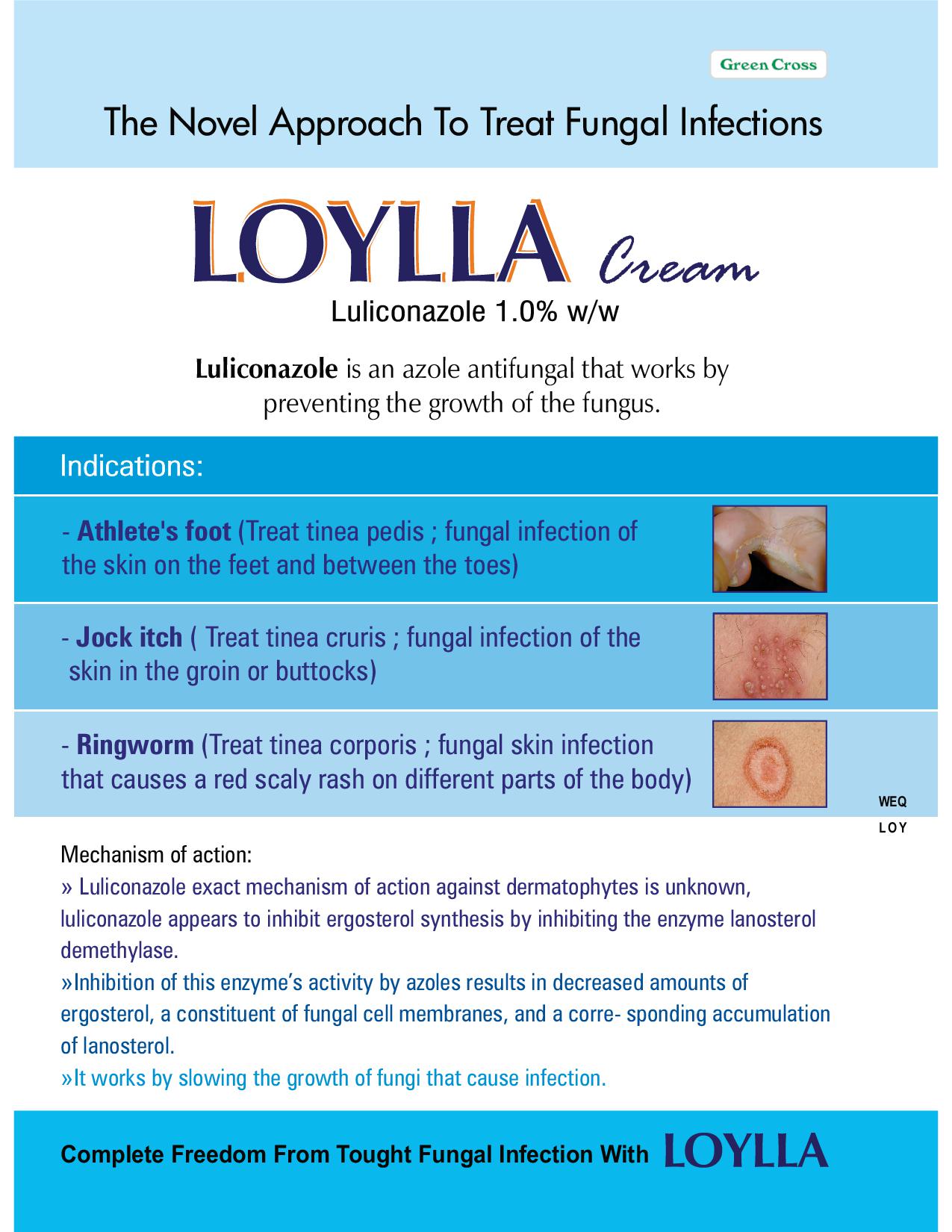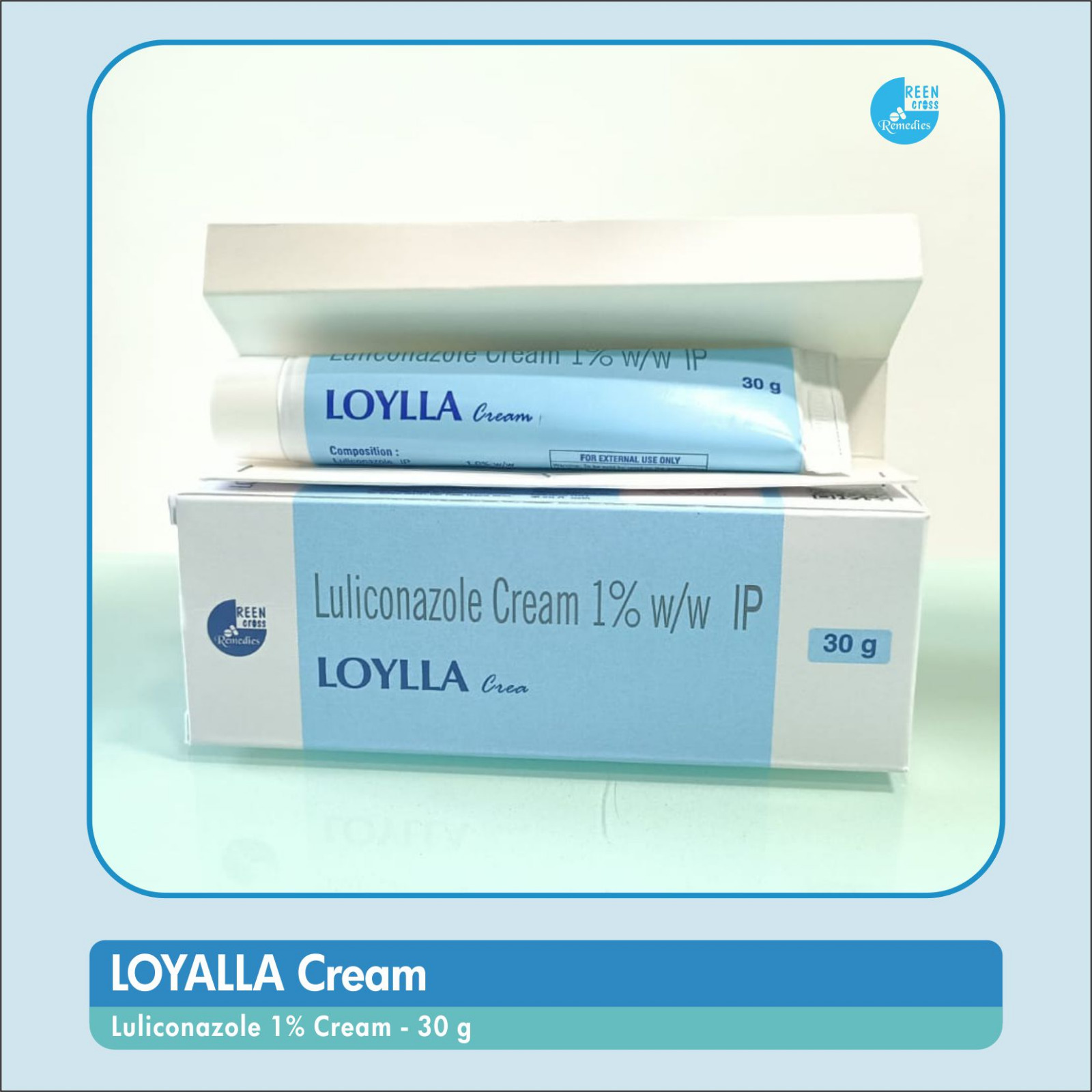LOYLLA Cream

Luliconazole 1% w/w Cream Use, Indication, Side Effects, Dosage, Mechanism of Action, Price, Contra-Indications, Drug Interactions..
Loylla Cream
Luliconazole is an antifungal that belongs to the azole class.
Luliconazole is an antifungal medication used primarily to treat fungal infections of the skin, such as athlete's foot (tinea pedis), jock itch (tinea cruris), and ringworm (tinea corporis).
Use and Indications of LOYLLA Cream:
- Use: Luliconazole is used topically (on the skin) to treat fungal infections.
- Indications: It is effective against dermatophytes such as Trichophyton spp., Microsporum spp., and Epidermophyton floccosum, which cause various fungal skin infections.
- Treat tinea pedis (athlete's foot; fungal infection of the skin on the feet and between the toes)
- Treat tinea cruris (jock itch; fungal infection of the skin in the groin or buttocks)
- Treat tinea corporis (ringworm; fungal skin infection that causes a red scaly rash on different parts of the body)
Mechanism of Action of Luliconazole Cream:
- Luliconazole belongs to the azole class of antifungal agents.
- It works by inhibiting ergosterol synthesis in fungal cell membranes, disrupting membrane integrity and function.
- This disruption leads to fungal cell death and helps in clearing the infection.
Side Effects of LOYLLA Cream:
- Common side effects may include mild itching, burning, or redness at the application site.
- Serious side effects are rare but can include severe allergic reactions like rash, itching/swelling (especially of the face/tongue/throat), severe dizziness, or trouble breathing.
Contraindications of LOYLLA Cream:
- Known hypersensitivity to luliconazole or any component of the formulation.
Drug Interactions of Luliconazole Cream:
- There are no significant drug interactions reported with topical luliconazole due to minimal systemic absorption.
- However, caution should be exercised if using other topical medications concurrently on the same area of skin, as interactions could occur.
Dosage:
- Adults and children (over 18 years): Apply a thin layer of luliconazole cream or lotion to the affected area once daily.
- Duration: Treatment duration varies depending on the severity of the infection and the specific condition being treated. Typically, treatment lasts from 1 to 4 weeks.
For Use of registered medical practitioner or a hospital only

